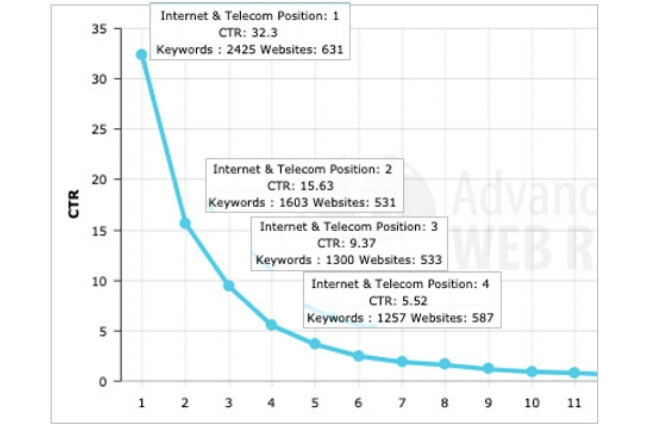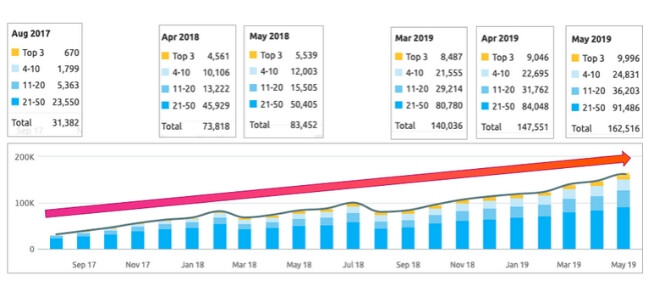Understanding the Value of SEO
With so many marketing budgets being reduced, CMOs and digital marketers alike are looking to ramp up their SEO efforts.
A survey by Conductor revealed 65% of marketers anticipate decreases to their marketing budget, but over half say search engine optimization is more important to focus on during this time.

SEO tends to be a lower-cost channel for digital marketing with a higher ROI in the long run. The same study found 66% of marketers reported SEO as a top-performing channel the previous year.
So why haven’t marketers been investing more budget in SEO services to strengthen their SEO strategy?
One of the reasons is that SEO efforts generally take longer and are harder to measure. But just because SEO success may take longer doesn’t mean it’s not still highly valuable!
For example, paid search strategies typically get traffic to your site faster, yet Google Ads are becoming more and more competitive and expensive. Every search query (or keyword) has a value and it’s better if you earn it rather than pay for it. On top of that, potential customers tend to not only trust organic search results more than paid search results, but they also tend to click on organic search results more.
Calculating the ROI of SEO
Every keyword has a value to it. What does that mean?
You can research how much a keyword costs in the Google Ads Keyword Planner. The keyword planner is a free tool that paid search experts use to build their Ad groups and keywords to bid on. SEO experts use the same tool to find keywords to target in organic search. Each keyword an SEO expert researches has a monthly average search volume and an average cost per click (CPC). So that means every keyword you target in organic search rankings would cost money if your website wasn’t organically appearing on page one of Google.
Being able to assign a value to SEO is how you can calculate ROI on your SEO campaign. To put it simply, ranking for organic keywords is free money. Do you like free money? Me too!
Ok fine, it’s not exactly “free money” because you are paying to have someone run your SEO digital marketing campaigns, but on average, investing in your website’s SEO yields more ROI. In some cases, you’ll receive 10x the ROI on your SEO investment!
So how do you calculate SEO ROI? Drum roll, please….
We can calculate the value of SEO by understanding the average cost per click, average monthly search volume, and click-through rates based on rank position. From there we can estimate how much organic website traffic your target keywords would bring in and tie a value to that traffic.
The formula to calculate ROI of SEO looks like this:
Keyword Search Volume x CTR = Estimated Organic Traffic x Average CPC = Keyword Value
First you will need to gather a couple key SEO metrics when calculating SEO ROI, or SEO value:
- Keyword Average Monthly Search Volume
- You can find a keyword’s average monthly search volume using the Keyword Planner
- Keyword average cost-per-click (CPC)
- The average click-through-rate (CTR) for your target keyword’s industry
- You can find average CTRs by referencing Advanced Web Ranking’s CTR Study.
The CTR chart, based on rank position, provided by AWR gives us the CTR percentages of a keyword based on the rank position on page one of Google’s SERP.

Next, take your target keyword and enter it into the formula. You will get something like this:
Formula: Keyword: “Virus Protection” (40,500 – Average Monthly Search Volume) Search Volume x CTR = Estimated Organic Sessions per month
• Position #1 = 40,500 x 32.3% = 13,081
• Position #2 = 40,500 x 15.63% = 6,330
• Position #3 = 40,500 x 9.37% = 3,794
• Position #4 = 40,500 x 5.52% = 2,235
Average Monthly Paid Search Spend based on estimated CPCs:
Formula: Search Volume x CTR = Estimated Traffic x Average CPC = Value of organic traffic or SEO
• Position #1 = 40,500 x 32.3% = 13,081 x $8.32 = $108,833
• Position #2 = 40,500 x 15.63% = 6,330 x $8.32 = $52,665
• Position #3 = 40,500 x 9.37% = 3,794 x $8.32 = $31,566
• Position #4 = 40,500 0 x 5.52% = 2,235 x $8.32 = $18,595
As you can see, the search term “virus protection” is a very valuable keyword when ranking in a top-ranking position in Google search results. If you were to pay for this keyword, it would cost you over $100k a month for position one. And this value is for just one keyword. Imagine if you increased page one positions by 50-100 new keywords? That’s a huge return on your SEO investment!
So now that you know how to calculate the value of your SEO marketing channel, you can plug in those numbers to a ROI formula.
A typical ROI formula looks like this:
ROI = Net Return of Investment Cost of Investment x 100%
So let’s say you invested in SEO and spent $10k a month over six months ($60k) and you were able to get 10 new keywords to rank on page one that have a total SEO value of $500k. You would plug it into your ROI calculator and determine if your efforts were fruitful.
ROI of SEO = $500k $60k x 100%
For this ROI calculation this SEO campaign would have yielded over 800% return on investment.
This is one way to measure your ROI of SEO. If you have an E-commerce website, you can plug in revenue numbers from the organic traffic channel to get a more brass tax type of number that impacts the bottom line. For lead generation websites that don’t have a customer value tied to their leads, this calculation of SEO ROI would work to show the value of the investment.
Measuring SEO Results
There are many KPIs and ways to measure SEO. However, some key metrics to keep an eye on would be the following:
- Organic Traffic Month over Month and Year over Year (GA)
- Organic Impressions and Clicks Month over Month and Year over Year (Google Search Console
- Overall domain rankings on page one or positions 1-10
- Track your target keywords using a SEO tool to monitor rankings
For a high-level image of how your SEO campaign is working, look at an overall trend line of rankings. You’ll want an obvious up and to the right graph as demonstrated below.

As you can see, this website increased keywords in the top 1-3 positions by over 9k keywords. That’s some impressive growth that yielded an increase in traffic and revenue.
SEO seems like a moving target sometimes, and it sort of is, but that’s why it’s so fun. Every day is a challenge and there are a lot of nuances to keep track of, but that shouldn’t keep marketers from tackling SEO and improving SEO value head-on. In the long run, you’ll be the hero by increasing brand awareness and increasing leads on a budget. All you have to do is understand all the different ranking factors, continue to create data-driven SEO content, make a few optimizations, and track the increase in organic traffic via Google Analytics.
At TEAM LEWIS, we simplify all your SEO work and walk you through each step and each deliverable so when your boss asks you how SEO is going, you’ll sound like an SEO expert. Then, they’ll probably get that glazed-over impressed look in their eyes and say “keep up the good work.”
Get started with your SEO education and start talking the talk by studying our SEO Glossary. Let’s be honest, speaking SEO is like speaking another language.




